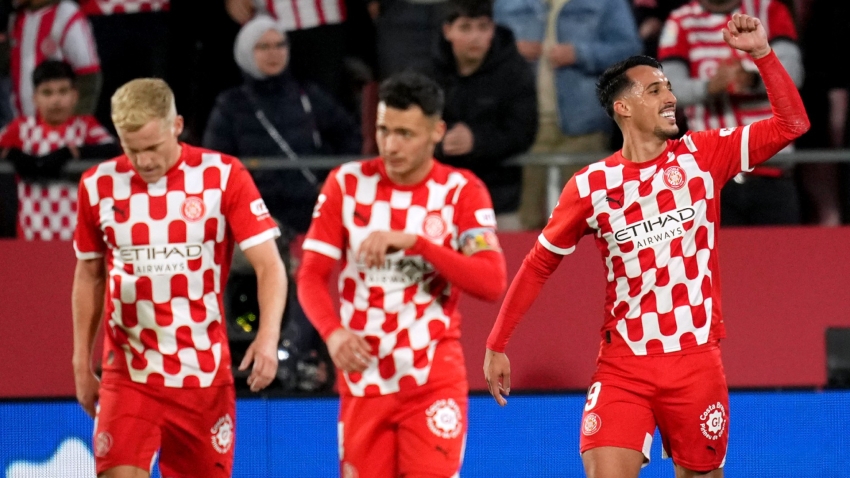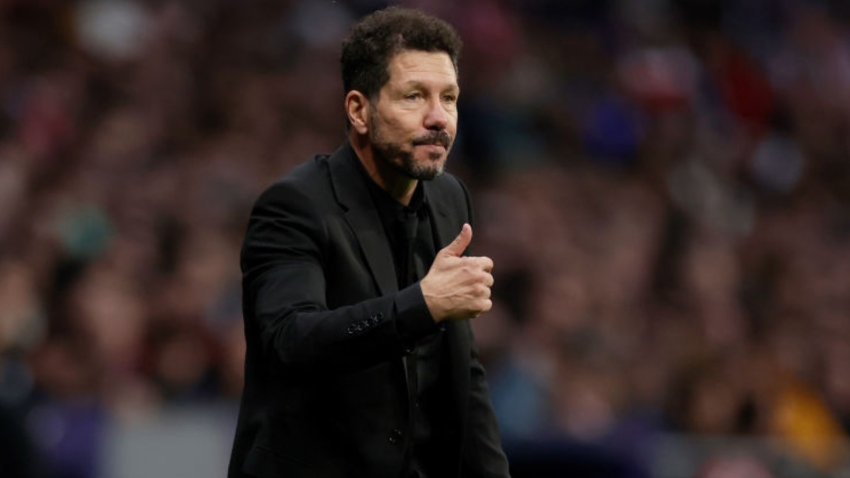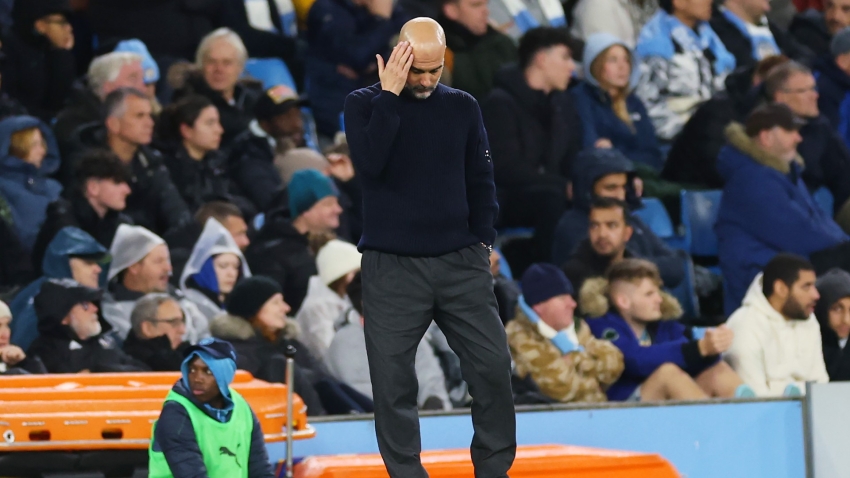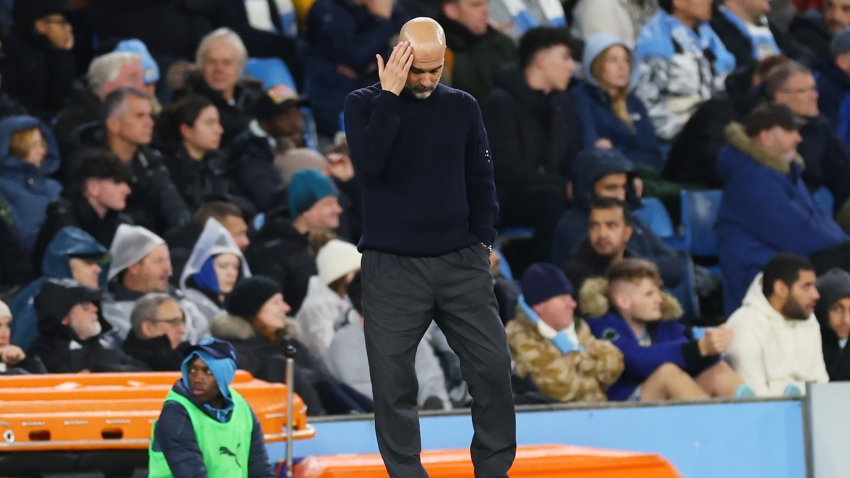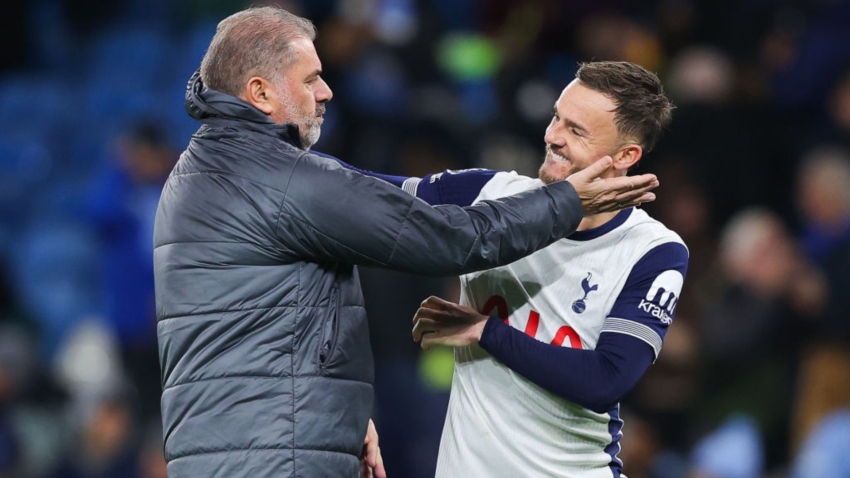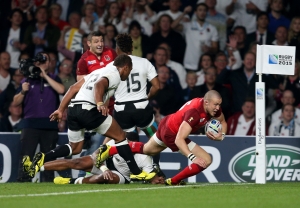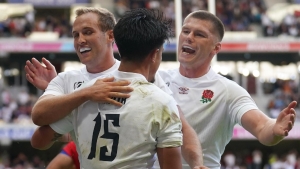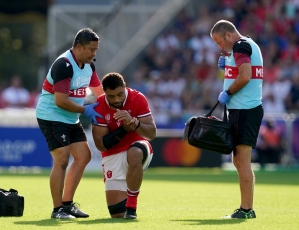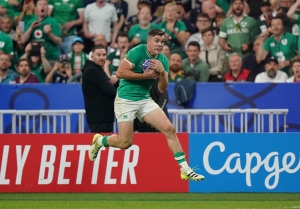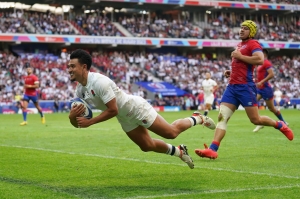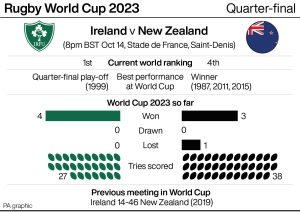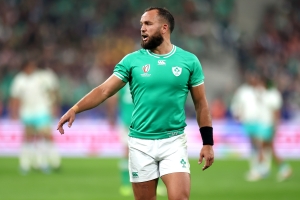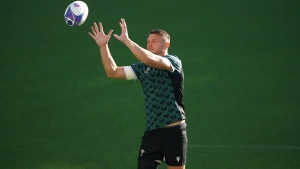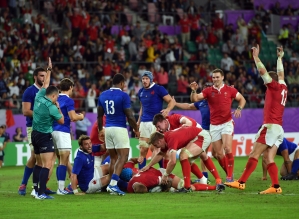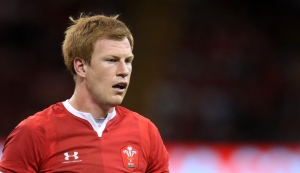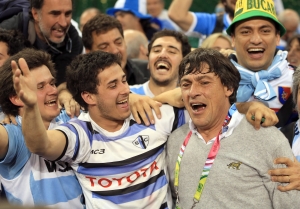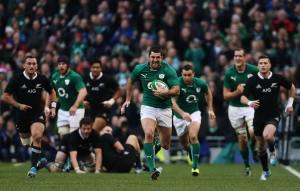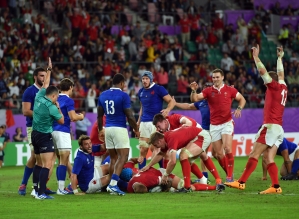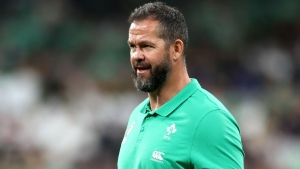Conor Murray believes New Zealand’s loss is Ireland’s gain as “world-class” trio Bundee Aki, Jamison Gibson-Park and James Lowe bid to give their native country serious cause for regret.
Centre Aki, scrum-half Gibson-Park and wing Lowe will face the All Blacks at the Rugby World Cup for the first time after being selected to start Saturday’s quarter-final showdown in Paris.
The three New Zealand-born backs qualified for Ireland on residency grounds and have become key performers for Andy Farrell’s side, including helping secure a landmark tour success over the Kiwis last summer.
Murray expects their personal circumstances to provide an extra edge to their performances at Stade de France.
“Those three boys are so important to our squad,” he said.
“What they did, taking the chance to come over here and start a new life for themselves and prove themselves, all three of them have really done so.
“They’re three world-class players who we’re really going to rely on heavily and have performed unbelievably well in this competition.
“It hasn’t really been mentioned, the New Zealand thing. They’re part of our Irish team now and they’re really important to us.
“I’m sure there’s a part of them, that little bit extra that they want to get one over on their place of birth but they’re fully part of our Irish squad now.”
Gibson-Park and Lowe each represented the Maori All Blacks prior to their respective moves to Leinster, before winning maiden Ireland caps in 2020.
Connacht player Aki made his Ireland debut in 2017 but missed Ireland’s last-eight World Cup loss to New Zealand in 2019 through suspension.
View this post on Instagram
A post shared by Irish Rugby (@irishrugby)
The 33-year-old, who four years ago was sent off against Samoa – his parents’ native country, has been one of the standout performers in France.
“I hate saying it but he’s been playing the rugby of his life,” Murray, who lost his starting role to Gibson-Park, said of Aki.
“He can come across as a bit of a messer or jolly fella but behind the scenes Bundee is incredible.
“The level of detail, he’s always on the computers and always trying to figure things out, so he’s actually a smart fella, believe it or not.”
Ireland’s tens of thousands of travelling fans celebrated each of their Pool B wins with rousing renditions of ‘Zombie’ by Irish band The Cranberries.
“Bundee thinks they’re singing ‘Bundee, Bundee’,” Murray added. “They’re definitely not!”
Munster number nine Murray has 111 Ireland caps, is a veteran of three British and Irish Lions tours and is playing at his fourth World Cup.
The 34-year-old, who will begin on the bench against the All Blacks, is preparing for the biggest game of his career as his country strive to reach a maiden semi-final.
View this post on Instagram
A post shared by Rugby World Cup (@rugbyworldcup)
“It would mean everything,” he said. “On the outside it’s obviously a talking point that we’ve never got there and within the group we think this is a different team and the capabilities are different.
“This weekend is the biggest game I’ve ever played and it’s the same for everyone in the group.
“To get through that would be a huge, huge moment; a huge milestone.
“Breaking the quarter-final isn’t something we talk about. But with the special group we have, it’s something we’re chasing and would absolutely love to do for ourselves and the fans here and at home.
“I can’t get away from how hard it’s going to be, how difficult a task it is, but it would mean the world to all of us to get to that next stage.”
Murray has lined up 14 times against New Zealand for Ireland and the Lions.
He has scored four tries across those outings, including in his nation’s maiden success over the All Blacks in 2016 in Chicago.
“I’ve played against the All Blacks where we’ve beaten them, but when we play (again) they’re a completely different animal,” he said.
“When I started off my international career playing against New Zealand was really daunting and it still is, but did we really expect to beat them is questionable, whereas now there’s definitely a bit more belief.”







